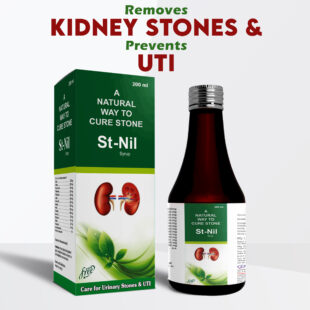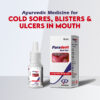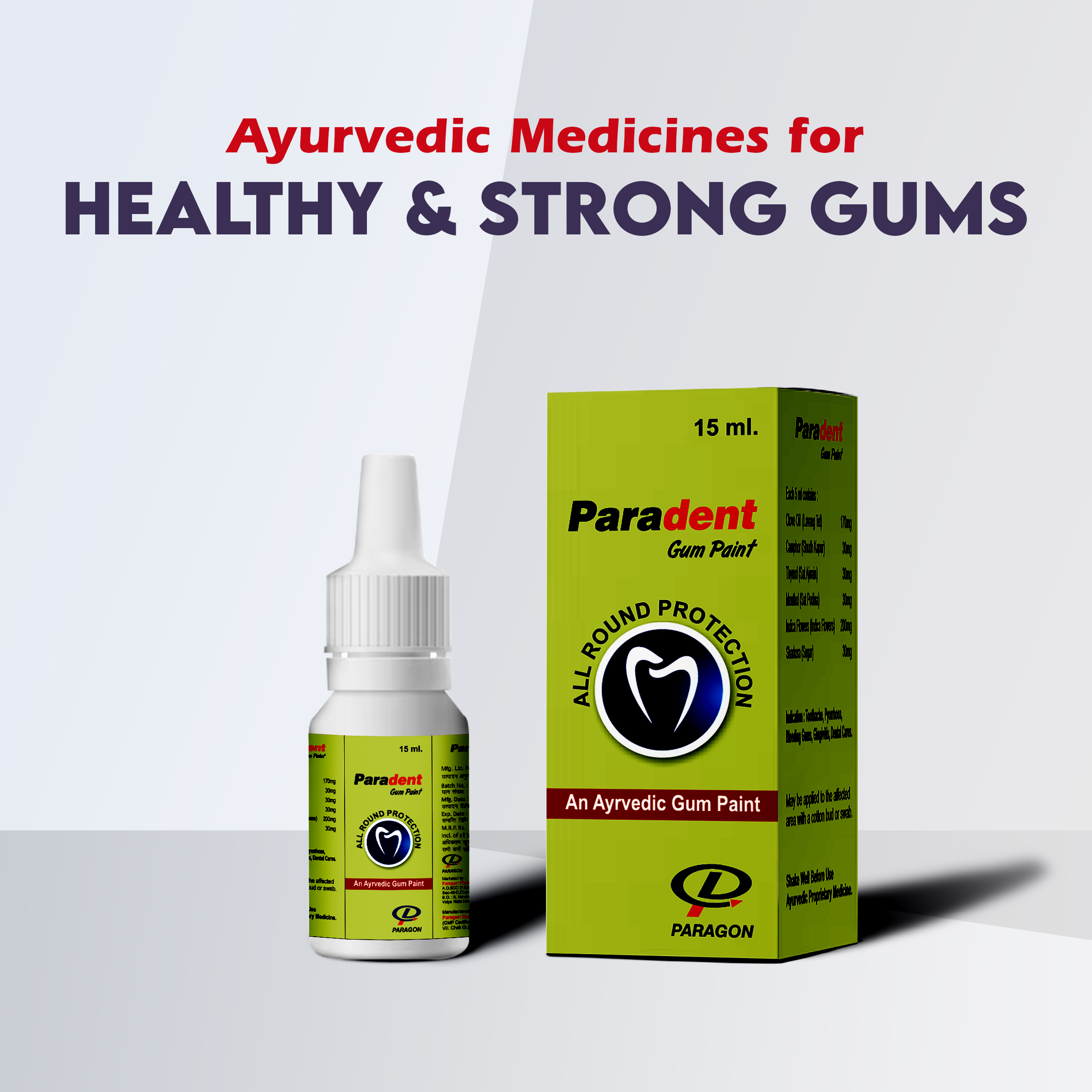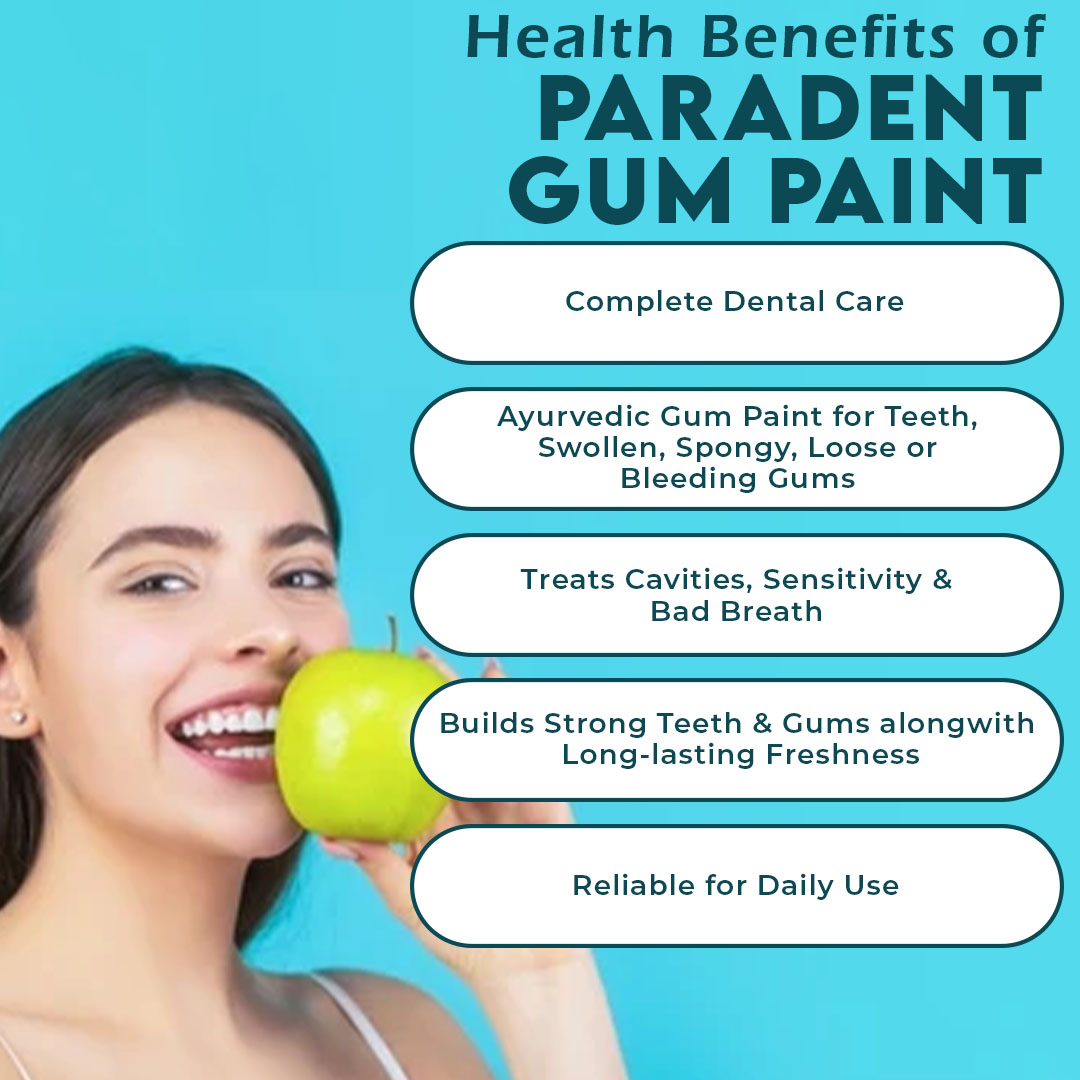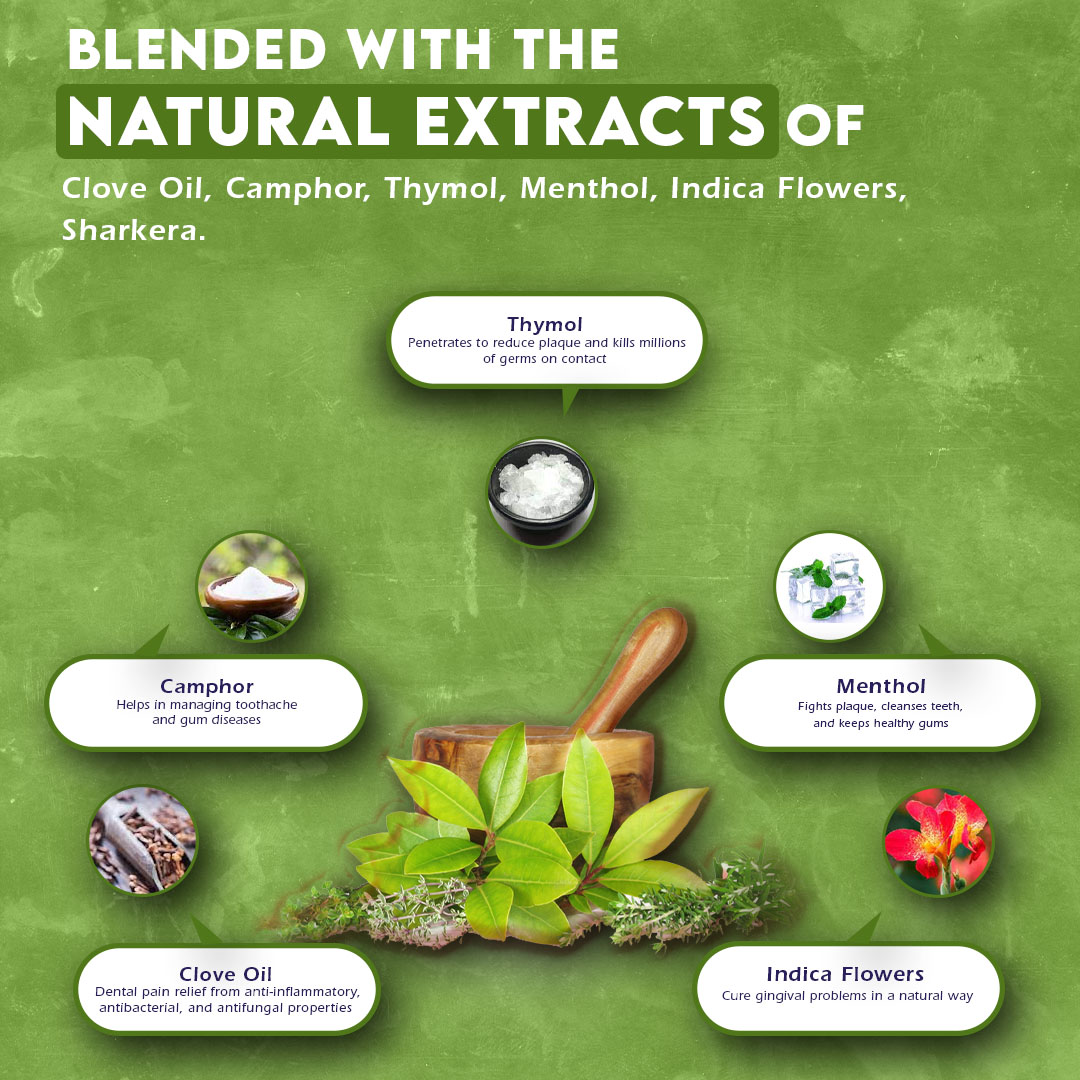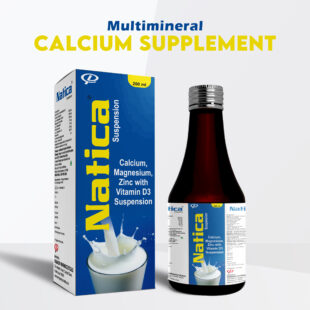- Your cart is empty
- Continue Shopping

Paradent Gum Paint
₹70.00
Paradent Gum Paint for Teeth & Gums – 15 ml (Pack of 1)
Ayurvedic Gum Paint for Teeth, Swollen, Spongy & Receding/Loose Bleeding Gums | Offers Complete Dental Care
Ingredients
Blended with the natural extracts of Clove Oil, Camphor, Thymol, Menthol, Indica flowers, Shakkar, etc.
About this Item
- Complete Dental Care: Treats Gum problems like Pyorrhoea, Bleeding gums, Cavities, Sensitivity, and Bad Breath. It treats bleeding or swollen gums very well. For Strong Teeth and gums- as gums are the pillars of strong teeth.
- Ayurvedic Ingredients: Paradent is an herbal gum paint that contains natural formula consisting of a synergistic blend of whole ayurvedic ingredients to support teeth, gums, and oral health.
- Reliable for Daily Use: An Ayurvedic Gum massage Gel 40ML; 100% more economical than ayurvedic gum paints of other brands. 100% vegetarian, Herbal gel for Regular use.
- Provides long-lasting Mouth Freshness: Contains Strong Natural flavors like elaichi, satpudina, and eucalyptus for good long-lasting breath.
Name: Paradent Gum Paint
Item Form: Liquid
Net Quantity: 15 ml
Package Information: Bottle
Indication: Toothache, Pyorrhoea, Bleeding gums, Gingivitis, Periodontal diseases, Dental care, etc
Dosage: A cotton bud or swab may be applied to the affected area.
Clove Oil
Clove oil is used for dental pain relief as it has anti-inflammatory, antibacterial, antifungal, and anesthetic properties. Clove oil contains eugenol, which is the primary component that renders clove, its medicinal properties. Eugenol is also a major ingredient in the dressings the dentist uses very frequently at their clinics for root canal therapy, and gum and abscess-related issues.
A few benefits of using clove/clove oil:
- Provides temporary relief from toothache. The eugenol ingredient present in the clove has anti-inflammatory properties that can help the ailing tooth.
- Clove has natural ingredients that can numb the part of the skin that is in close contact with the teeth.
- Due to its antibacterial and antifungal properties it is widely used in toothpaste preparations.
1. Use of clove oil in Dry Socket: Sometimes after the removal of the tooth, the area of the empty socket could get infected due to the removal of the healing clot and cause immense pain. This condition is called a dry socket. A simple application of two drops of Paradent Gum Paint for seeking relief in the infected area would help in pain relief.
2. Use of clove oil in toothache: Toothaches are painful and the intensity of the pain can vary from person to person. Eugenol-based gum paints cause lesser toothache, inflammation, and other tooth-related problems. Paradent Gum Paint is a remedy in providing temporary relief from pain.
3. Use of clove oil in Gum disease: Gum disease is a common dental problem that needs to be addressed sooner before it causes more trouble. Gingivitis and Periodontitis are common problems related to gum disease. Paradent Gum Paint proves helpful in a few cases as it has antibacterial properties and helps in warding off bad bacteria.
Clove oil-based oral products also help in fending off bad breath due to their antibacterial properties.
Camphor
Camphor is known to cure diseases such as asthma, whooping cough, bronchitis, pulmonary congestion, hysteria, delirium, insomnia, epilepsy, gout, rheumatism, nasal congestion, etc.
USES OF CAMPHOR IN ORAL HEALTHCARE
Oral diseases impact our quality of life and may lead to systemic and threatening diseases. In this era of modern medicine, there has been increased usage of modern medicinal techniques involving the usage of antibiotics, antipyretics, etc. But the basis of all medicine lies in its botanical foundation which has increased proportions of camphor, neem, tulsi, etc, which has high medicinal importance.
- Dental Caries: Camphor is used in the treatment of Caries caused by bacterial acid production in tooth plaque, which can cause deep localized lesions if it remains too near the tooth for any length of time. If left the bacteria then may penetrate the tooth further and progress into the soft pulp tissue. Untreated dental caries can lead to incapacitating pain, potential tooth loss, and loss of dental function.
- Pain Relief: Camphor also has a mild local anesthetic action and hence relieves dental caries pain and sensitivity. Camphor, with the virtue of its vapor properties, helps in incurious pain relief. In dentistry, it is used as an antibacterial for infected root canals.
- Periodontitis and Pulpitis: Gum paints are a combination of antiseptics and tanning agents which precipitate proteins but do not penetrate cells thereby affecting only the superficial layer making it stronger and preventing exudation. Camphor seems to stimulate nerve endings that relieve symptoms such as pain and itching when applied.
- Dental Plaque: Camphor is used to remove tartar, plaque, and stain and in cleansing and polishing tooth surfaces without producing any abrasion.
- Oral Ulcers: Camphor can be used for application to treat ulcers. Camphor has a cooling and soothing effect which relieves ulcerative pain immediately.
Thymol
Thyme belongs to the mint family and therefore is often used in mouthwashes and elixirs to give flavor and freshness for oral health treatments. It contains natural chemicals that help defend from tooth decay, gingivitis, and general oral infections.
1. Kills Bacteria and Infections: Due to thyme components like caryophyllene and camphene, the oil is antiseptic and kills infections on the skin and within the body. Thymol is also antibacterial and inhibits bacterial growth; this means that thyme oil is able to treat bacteria that build up in the respiratory system and heals cuts or wounds that are exposed to harmful bacteria.
2. Promotes Teeth Health: Thymol is known to treat oral problems like tooth decay, gingivitis, plaque, and bad breath. With its antiseptic and antibacterial properties, thymol is a natural way to kill germs in the mouth so you can avoid oral infections, so it works as a gum disease natural remedy and cures bad breath.
Menthol
Menthol: The Oral-Health Powerhouse
Menthol is excellent for oral health, specifically. Clinical research has verified its anti-microbial and anti-inflammatory properties, as well as its ability to stimulate saliva production, all of which play an important role in healthy mouths.
1. Provides Nutrients: Menthol, a popular member of the mint family, is a great source of vitamin A, iron, and folate. Folate is important for oral health because of its role in healthy cell growth and function.
2. Soothes Swelling: Menthol is widely attributed to anti-inflammatory properties, thanks to its strong antioxidant action. It helps ease swelling and counteract bleeding gums. It helps kill bacteria in the mouth and prevent gingival bleeding.
3. Kills Germs: Menthol is especially oral-health friendly because it is naturally antimicrobial. That is to say, it kills bacteria in the mouth that otherwise might contribute to tooth decay.






